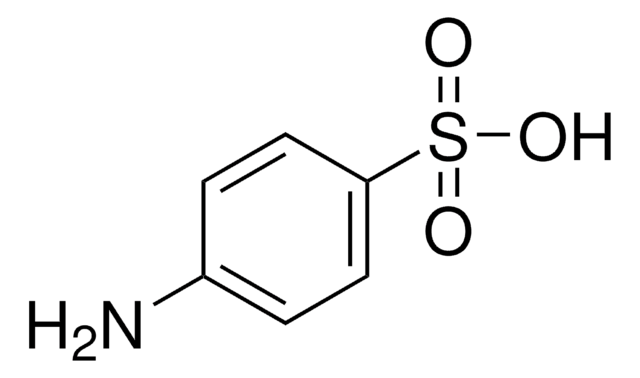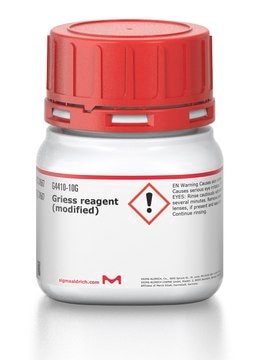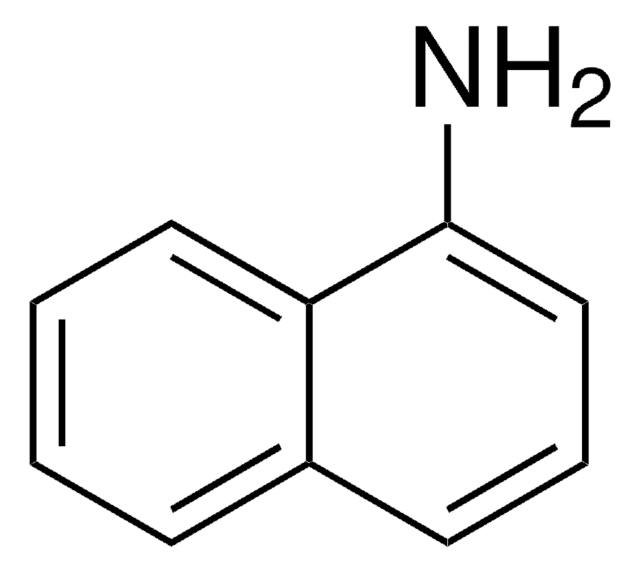73426
Nitrate Reduction Test
suitable for microbiology
About This Item
Recommended Products
product line
BioChemika
Quality Level
shelf life
limited shelf life, expiry date on the label
technique(s)
microbe id | metabolite detection: suitable
application(s)
agriculture
clinical testing
environmental
food and beverages
pharmaceutical
microbiology
storage temp.
2-8°C
suitability
Enterobacter spp.
Neisseria spp.
anaerobic bacteria
bacteria
General description
Components
Sulfanilic acid (Cat. No. 86090) = Reagent A 100 g,
N,N-Dimethyl-1-naphthylamine (Sial D4011) = Reagent B 10 mL
Zinc (Cat. No. 93027) 1 g.
Signal Word
Warning
Hazard Statements
Precautionary Statements
Hazard Classifications
Acute Tox. 4 Oral - Aquatic Chronic 2 - Eye Irrit. 2 - Ox. Liq. 3 - Skin Irrit. 2 - Skin Sens. 1
Storage Class Code
5.1B - Oxidizing hazardous materials
Personal Protective Equipment
Choose from one of the most recent versions:
Already Own This Product?
Find documentation for the products that you have recently purchased in the Document Library.
Customers Also Viewed
Articles
There are many other methods of detection to indicate the presence of E. coli. Review common tests and biochemical reactions for this contaminant.
For microbiologists the most fundamental stain was developed in 1884 by the Danish bacteriologist Hans Christian Gram.
Our team of scientists has experience in all areas of research including Life Science, Material Science, Chemical Synthesis, Chromatography, Analytical and many others.
Contact Technical Service









![Nitrate Reductase (NAD[P]H) From Pichia Pastoris, recombinant freeze-dried protein glass](/deepweb/assets/sigmaaldrich/product/images/859/572/ae8d80df-c6d0-4cce-a526-35f8e21ca729/640/ae8d80df-c6d0-4cce-a526-35f8e21ca729.jpg)
